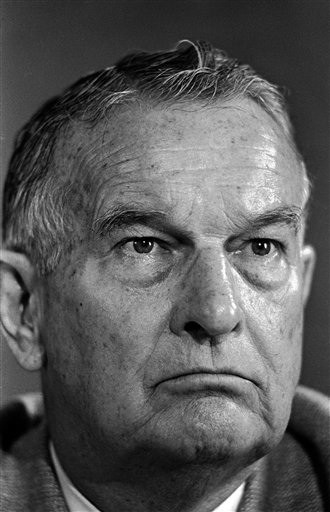
Bill Clements died Sunday after a brief hospital stay (Associated Press )
Flags throughout the state of Texas flew at half-mast Sunday in honor of former Texas governor and SMU Trustee Emeritus Bill Clements.
Clements passed away Sunday at the age of 94 after a brief hospital stay.
According to a statement by his family, Clements had been ill for several months and was still in a deep state of grieving after the sudden death of his son, who was shot and killed by a neighbor last year.
At SMU, Clements gave gifts in support of the engineering, theology, mathematics and history. He endowed the Clements Department of History and the Clements Center for Southwest Studies. Clements and his wife Rita were also instrumental in acquiring and rebuilding SMU-in-Taos.
“His legacy as a business leader, public official and supporter of SMU will stand the test of time,” SMU President R. Gerald Turner said in a formal statement. “He was a member of the SMU community for more than 70 years and he will be greatly missed.”
Clements also served as the chairman of the board from 1967-1973 and then again from 1983 to 1986, most famously during the university’s “Pony-Gate” scandal.
The Dallas native was also one of the most prominent Texas oilmen. He founded SEDCO in 1947, the world’s largest offshore drilling company. The company was later sold to Schlumberger.
Clements has also been credited as the “father of the modern Republican Party in Texas.”
He served as the governor of Texas for two terms, though not consecutively. He was the first Republican to be voted into the Governor’s office since Reconstruction. During his time in office he worked to make the state government run like a big business.
Former President George W. Bush issued a statement after Clements passing, “Laura and I are deeply saddened by the loss of Governor Bill Clements. He was a political pioneer who served Texas and our country with distinction. Most of all, he was a friend who will be missed.”
Clements also headed up Richard Nixon’s statewide campaign for president in 1972 and served as the deputy secretary of defense from 1973 to 1977.
“It is somewhat fitting that he died Memorial Day weekend since he so appreciated the opportunities he had to serve his state and country,” Clements’ family said in a statement quoted by the Associated Press.














